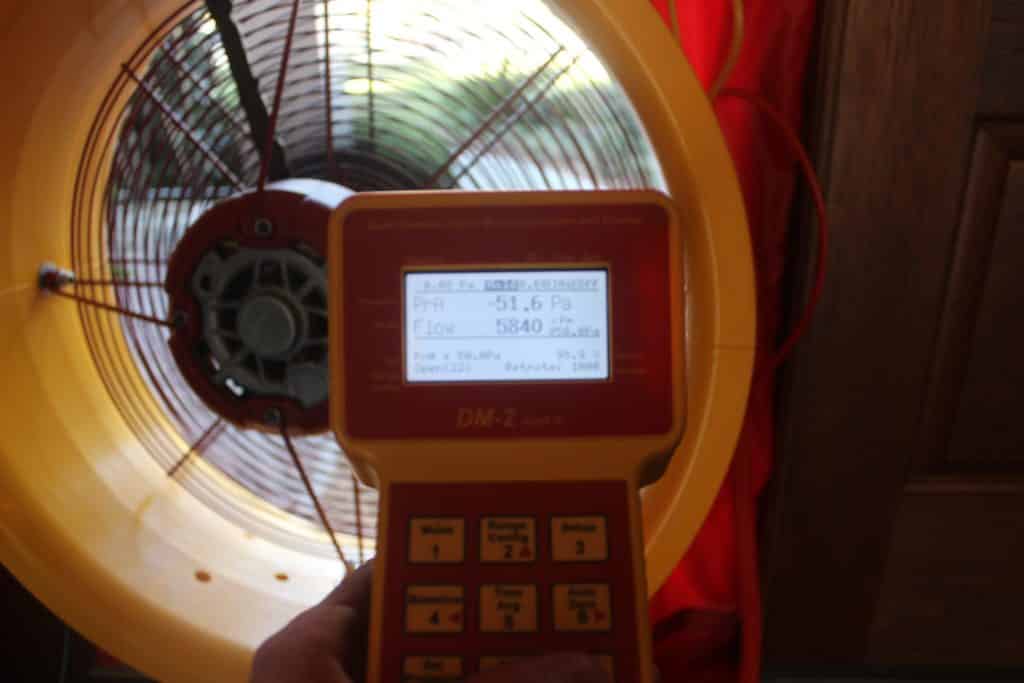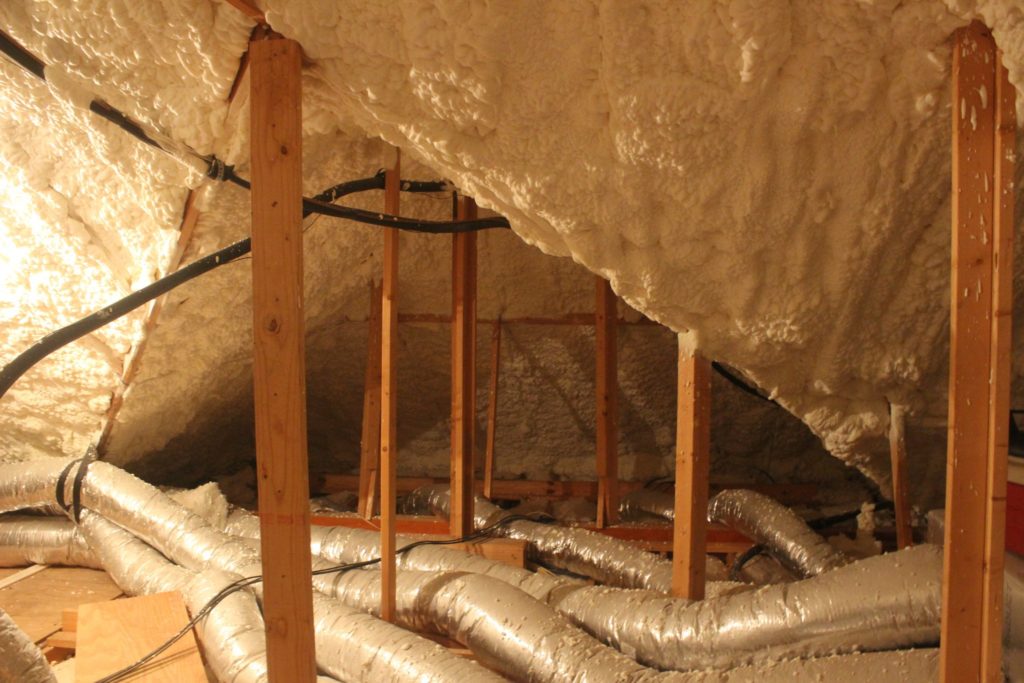Just breathe
You need to do it. Your dog Sparky needs to do it. Your nice big glass of red wine may even need to do it. But your house? Not so much. The old-fashioned notion that a house needs to breathe is just that, outdated and out-of-step with modern building science. The truth is that a house simply cannot be too airtight; it can only be under-ventilated. Natural ventilation, which requires that uncontrolled and likely way-less-than-fresh air be allowed to “leak” in and out of your home at will, isn’t the answer.
Seal it tight
Preventing air leaks and their many unpleasant effects on everything from your home’s structural integrity, to your energy bill, to your own health, is crucial. A house should be as airtight as possible, and spray polyurethane foam, often referred to as “the miracle insulation product” because of its unsurpassed ability to reduce air leakage, is a great way to achieve that goal.
Ventilate right
On the other hand, you also need proper ventilation to ensure that your home meets ASHRAE air quality standards. While natural ventilation may have you breathing air that creeps in any-old-time from just-any-old-where (like your musty crawlspace or dusty attic), mechanical ventilation draws air directly from outside and allows control over both the amount of fresh air that flows through your home and the frequency with which it does so.
A properly-designed mechanical ventilation system has other advantages too:
- The amount of ventilation is adjustable, so you can back off on the fan while you’re away enjoying “me time” on a beach somewhere, or crank it up when your home is packed for a party!
- Windy, calm, rainy, dry, hot, or cold — mechanical ventilation delivers a consistent amount of fresh air, regardless of the weather.
Trust Sunlight
The experts at Sunlight Contractors are committed to improving your comfort and energy savings, while also considering the importance of your home’s air quality. To that end, their professional spray polyurethane foam installers always perform blower door tests before and after installing spray foam insulation. The tests allow them to calculate how and where a home is particularly “air leakiest” so that they can address insulation needs accordingly.

And if the tests suggest that your home is too tight, Sunlight can advise you about checking with an HVAC contractor for help with mechanical ventilation needs. Sunlight will also evaluate your home’s compliance with ASHRAE air quality standards and provide you with a written report of their findings.
Unlike other Louisiana spray foam contractors, Sunlight’s installers are highly trained and certified by third-party, professional organizations such as the LSLBC, SPFA, and BPI. Owner Corey Yates is a Master Spray Foam Installer with hundreds of hours of field experience in addition to certification through the Spray Polyurethane Foam Alliance. Before you hire quasi-professionals, be sure to investigate their qualifications using the links to professional organizations provided in this post and compare them with Sunlight Contractors’ qualifications.
CALL TODAY
The highly trained, certified professionals at Sunlight Contractors will help you seal it tight and ventilate it right, while keeping you informed about the air quality of your home. No other insulation contractors can surpass Sunlight when it comes to savings, solutions or service!


